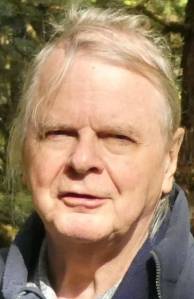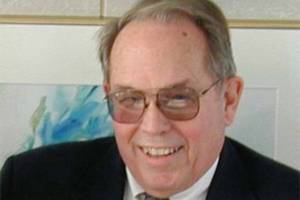Op-ed: A moving experience
Published 7:30 pm Monday, November 20, 2017
SAN FRANCISCO — Evidence that when Democrats rule taxes are never high enough can be found at any gas station in this once politically competitive state. Last month, the California gas tax was raised 12 cents a gallon. Regular gas at some stations is again approaching, and in some cities exceeding, $4 a gallon, a level not seen since natural disasters temporarily curtailed refinery production, and Gulf States manipulated prices.
Republicans plan to put the gas tax issue on the 2018 ballot; hoping voters will roll back the increases.
Some are not waiting for the next election, but are voting with their feet. One couple I know recently moved from San Diego to Arizona solely because of high taxes on their income and regulations on their small business. They are not alone.
Coupled with the increasing cost of living in big cities, California, once a magnet for new arrivals, has now reversed polarity. Taxes are only part of the reason for the exodus. According to Chief Executive Magazine’s annual survey of the best and worst states for business, California has ranked last six years in a row. Texas, by contrast, has ranked first.
Add to this the recurring earth tremors, even earthquakes — there was another Monday in Monterey County that registered 4.7 — and expectations of a “big one,” which continues to be talked about in scientific circles. Floods and forest fires destroy homes and lives. One-party rule also serves as an irritant for many of a different political persuasion.
Gov. Jerry Brown recently signed legislation declaring California a “sanctuary state” for illegal immigrants. The law forbids state and local police from providing any information to the federal government about illegal aliens that isn’t already publicly available.
Then there is the annoying traffic. USA Today recently declared Los Angeles as having the worst traffic, not just in the country, but the world. San Francisco is not far behind.
The state legislature is flirting with a single-payer health insurance system, similar to Canada’s. But with many Canadians coming to the U.S. for serious medical treatment, why would legislators want to replicate their less than ideal health care system? It again raises a question I have asked many times before and have yet to get a satisfactory answer: Why do so many turn to government as a first resource when government has proved its inability to achieve so many things competently and cost efficiently?
In this city by the bay, housing prices are so ridiculous The Guardian newspaper found a high-tech employee paying $1,400 a month to live in a “private room,” which resembles a closet. “One Apple employee,” it said, “was recently living in a Santa Cruz garage, using a compost bucket as a toilet. Another tech worker, enrolled in a coding boot camp, described how he lived with 12 other engineers in a two-bedroom apartment rented via Airbnb. ‘It was $1,100 for a … bunk bed and five people in the same room.’”
Salaries in Silicon Valley are high compared to other parts of the country, but the inflated housing costs dilute whatever buying power someone with that level of income would enjoy in most other states.
California is still a mostly beautiful state, especially along the coast, but its beauty is more superficial than substantive. According to the Orange County Register, “In 2016, some 26,000 more people left the Bay Area than arrived. San Francisco net migration went from a high of 16,000 positive in 2013 to 12,000 negative three years later.
“Similar patterns have occurred across the state. Between 2010 and 2015, California had cut its average annual migration losses annually from 160,000 to 50,000, but that number surged last year to nearly 110,000. Losses in the Los Angeles-Orange County area have gone from 42,000 in 2011 to 88,000 this year. San Diego, where domestic migration turned positive in 2011 and 2012, is now losing around 8,000 net migrants annually.”
Given the policies of state government, don’t look for those numbers to improve.
Readers may email Cal Thomas at tcaeditors@tribpub.com.




